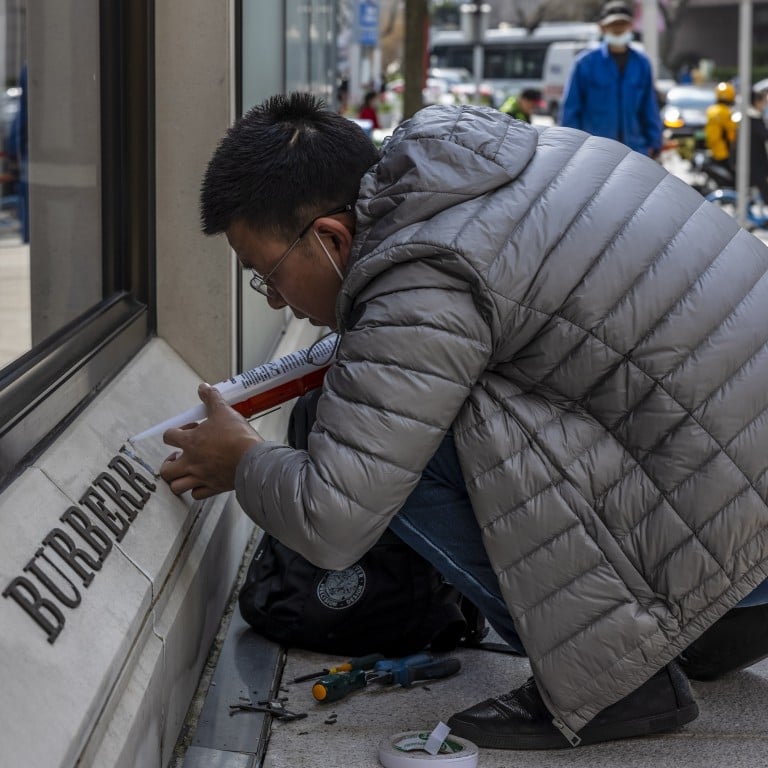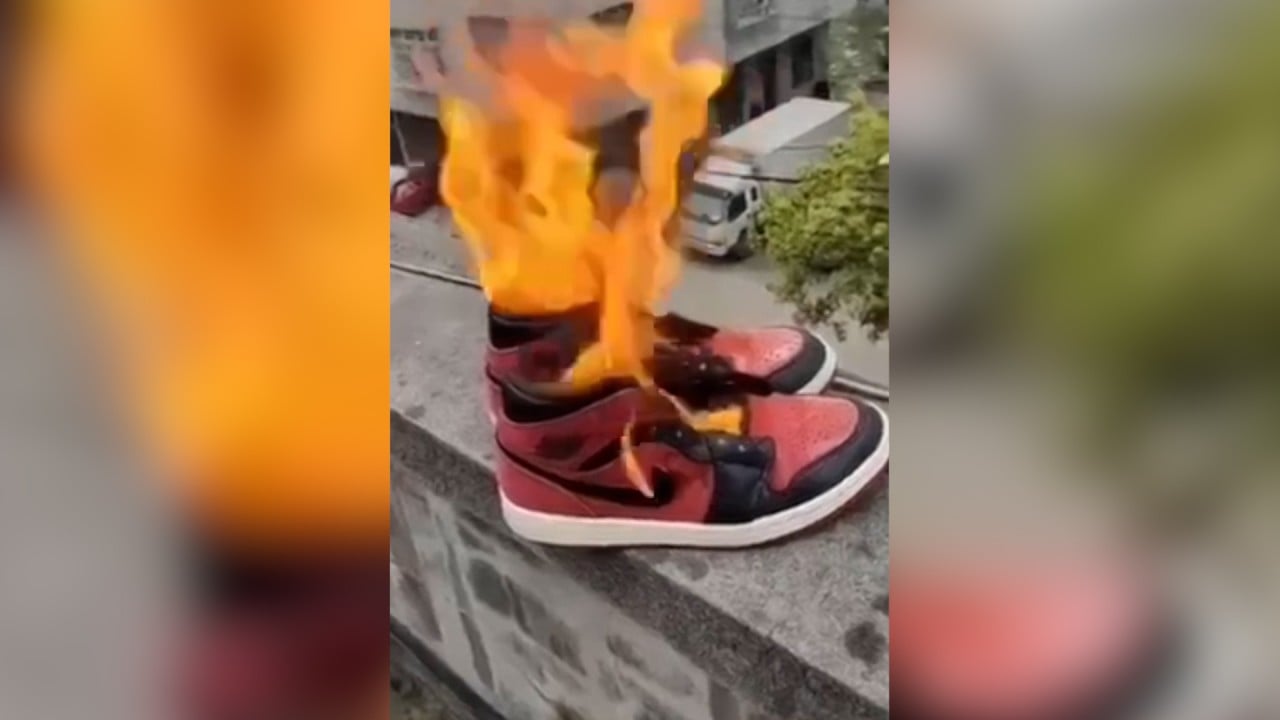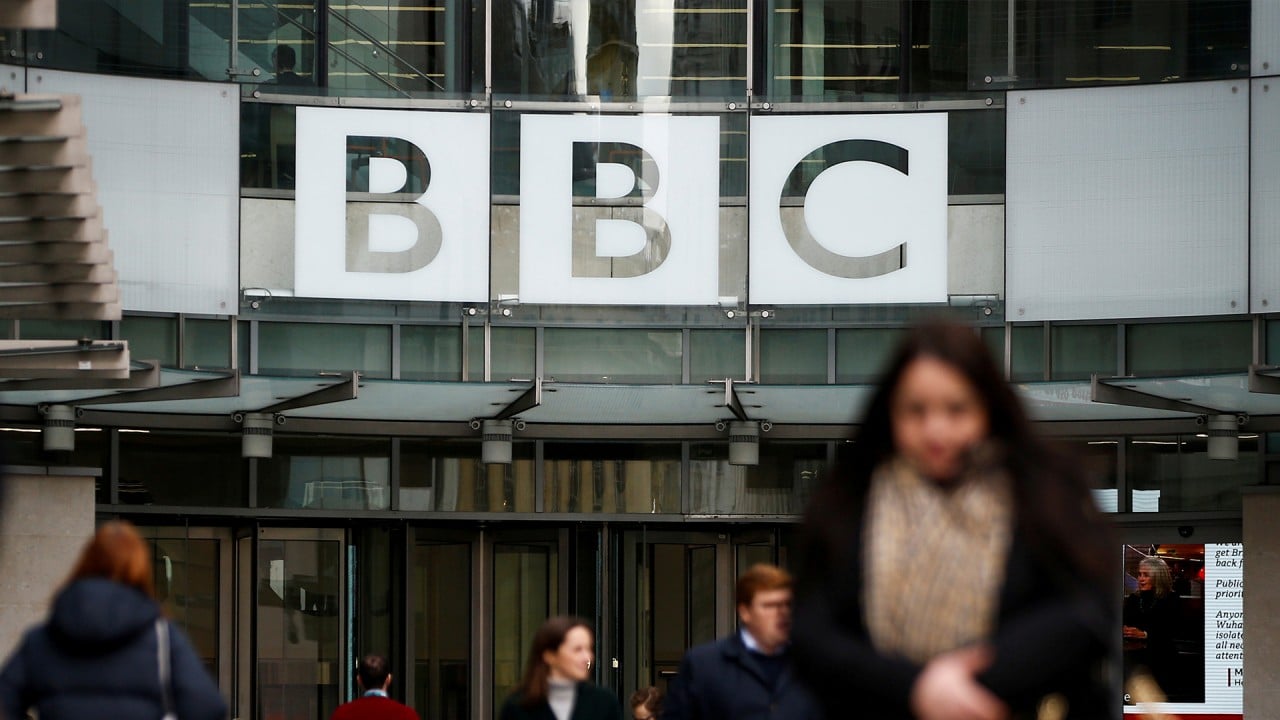
Xinjiang cotton row puts Burberry, Nike and other Western brands in a quandary – and pushes Hong Kong’s patriots to walk the talk
- With Chinese media and netizens attacking Western brands that have shunned Xinjiang cotton on human rights grounds, Hong Kong’s Beijing loyalists are under pressure to purge their wardrobes
- Western companies wanting a slice of China’s market , meanwhile, face a tough choice between money and morals
Is that a Burberry trench coat, handbag or scarf? Dispose of them post-haste. Is that Nike or Adidas? Shame on you.
The less well-heeled loyalists need to know that more affordable brands – and I mean no disrespect – such as H&M, Zara and Uniqlo are also on the hit list.
As Hong Kong becomes mainlandised, there really is no need for wealthy patriots to patronise Burberry or Nike. They are spoiled for choice with mainland brands. There are plenty of knock-offs for the less well-heeled.
Nationalistic Chinese netizens have already demanded a boycott of these brands. They need to remind their nation’s athletes not to use Nike or other shamed brands at the upcoming Olympic Games.
But local loyalists need not soul-search over such issues. Their mainland compatriots don’t. Moral soul-searching is trivial in the nobler quest to prove one’s patriotism.
Burning sports shoes will create a polluting stink. I advise against that. Burning Burberry is a wealthy tai tai’s worst nightmare. Throwing these items in the harbour is illegal.
Is this the next Xinjiang product to upend global supply chains?
Standing up for human rights is considered by some as just a Western value. Many Western countries, including the countries of these brands, have made it part of their foreign policy. Prioritising mainland money over the morals of their own countries would earn them scorn in Western democracies, which are also a huge market.
It is time Western companies wanting a slice of China’s market search their souls. Money or morals? To make mainland money, they need to sacrifice their morals and bow to Beijing, its state-controlled media and netizens.
If they ask you to jump, you must ask how high. If it’s not high enough, expect a boycott by state-controlled nationalistic netizens. The choice is clear. You must do what they order regardless of your conscience or lose your slice of the market.
Michael Chugani is a Hong Kong journalist and TV show host



